Search Results
Showing results 1 to 20 of 40
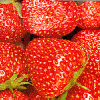
DNA Extraction
Source Institutions
In this activity related to plant biotechnology, learners extract DNA from fruit to investigate how it looks and feels.

Hold a Hill
Source Institutions
In this outdoor activity, learners investigate the relationship between the slope of a trail and soil erosion.
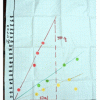
Plot the Dot: A Graphical Approach to Density
Source Institutions
In this activity, learners work in groups to determine the mass and volume of four samples: glass marbles, steel washers or nuts, pieces of pine wood, and pieces of PVC pipe.
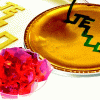
Jell-O Model of Microfluidics
Source Institutions
This activity uses Jell-O(R) to introduce learners to microfluidics, the flow of fluids through microscopic channels.
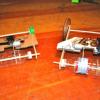
Bottle Cars
Source Institutions
In this activity, learners explore motion, energy, and electricity by constructing bottle cars that run on motors.
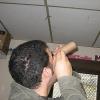
Spectroscope
Source Institutions
In this activity (posted on March 12, 2011), learners follow the steps to construct a spectroscope, a tool used to analyze light and color.

Terrestrial Hi-Lo Hunt
Source Institutions
In this outdoor activity, learners search for the warmest and coolest, windiest and calmest, wettest and driest, and brightest and darkest spots in an area.

Moisture Makers
Source Institutions
In this outdoor activity, learners compare the moisture released from different kinds of leaves and from different parts of the same leaf, by observing the color change of cobalt chloride paper.
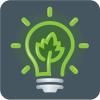
Making Connections: What You Can Do To Help Stop Global Climate Change
Source Institutions
In this cooperative learning activity, learners visit ten stations and are challenged to think critically about various conservation questions and issues.
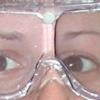
Altered Reality
Source Institutions
In this activity, learners discover that the human brain is highly adaptable. Learners try to toss beanbags at a target while wearing prism goggles.
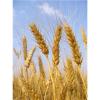
Wheat Germ DNA Extraction
Source Institutions
This laboratory exercise is designed to show learners how DNA can easily be extracted from wheat germ using simple materials.

Super Soil
Source Institutions
In this outdoor activity, learners make their own organic-rich soil. Depending on where this activity is done, learners will probably discover that their local soil is low in organic matter.
Simple Submarine
Source Institutions
Using simple, inexpensive items, learners build and test submarine models.
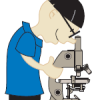
What Cells Can I See in Muscle and Spinal Cord Tissues?
Source Institutions
In this activity (page 37 of the PDF), learners observe, on a prepared slide, muscle and spinal cord cells from a rat.
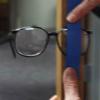
Make Your Own Telescope
Source Institutions
Discover how a refracting telescope works by making one from scratch using common items. This telescope won't have a tube so the learner can see how an image is formed inside the telescope.
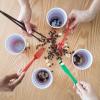
Bean-Counter Evolution
Source Institutions
In this simulation game, learners play as predators equipped with genetically different “mouths” (utensils) and hunt for “prey” (assorted beans).
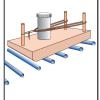
Newton Car
Source Institutions
In this activity, learners work in teams to investigate the relationship between mass, acceleration, and force as described in Newton's second law of motion.
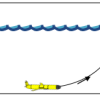
Exploring the Ocean with Robots
Source Institutions
In this activity, learners are introduced to robotic submarines called gliders. Learners make “gliders” from plastic syringes and compare these to Cartesian bottles and plastic bubbles.

Echolocation Lab
Source Institutions
In this lab, learners experience how dolphins and other echolocating animals use their senses to locate and identify objects without using their sense of sight.
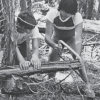
Sawing Away
Source Institutions
In this outdoor activity, learners saw sections from fallen trees, then count tree rings and look closely at patterns of tree growth.
